Bibliography
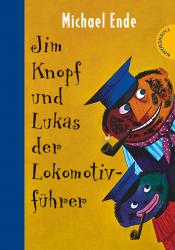
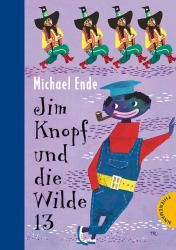
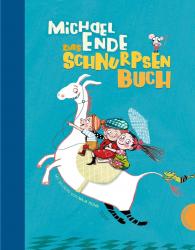
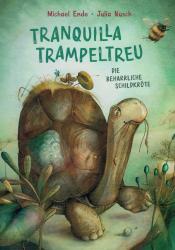
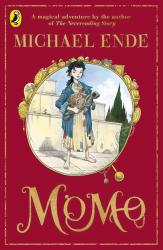
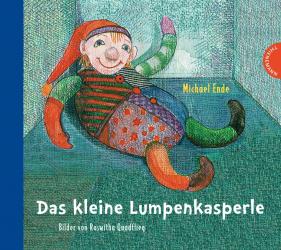
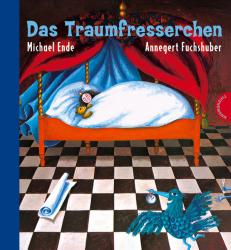
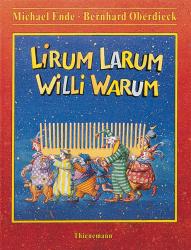
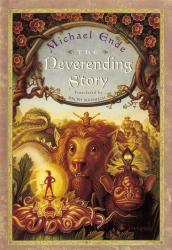
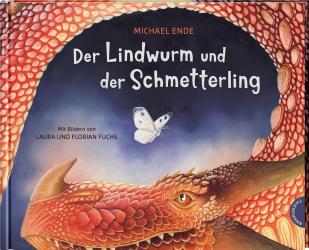
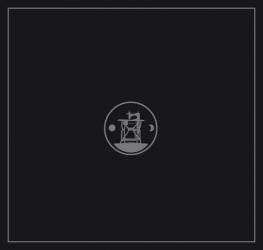
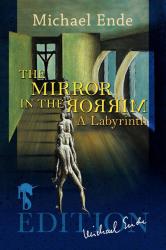
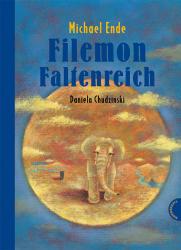
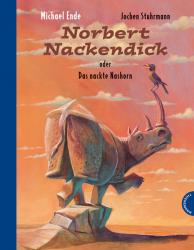
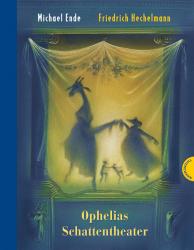
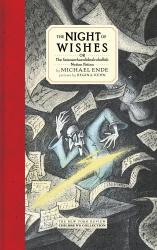
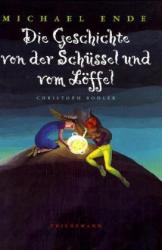
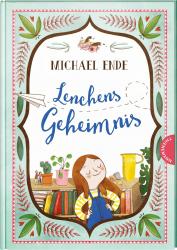
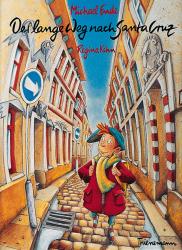
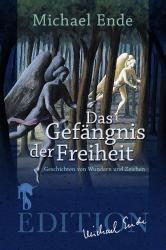
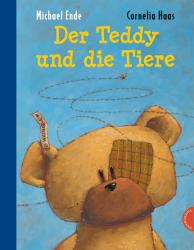
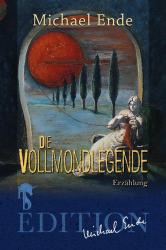
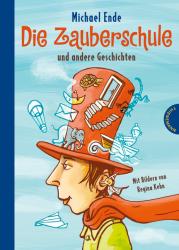
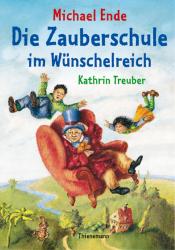
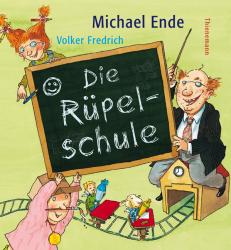
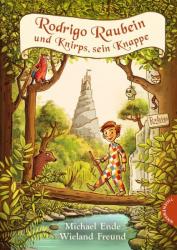
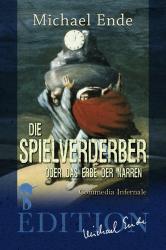
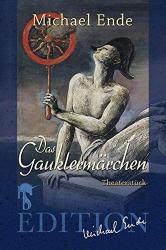
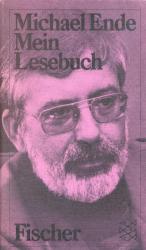
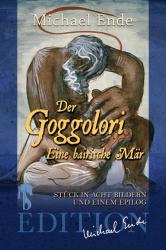
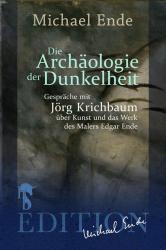
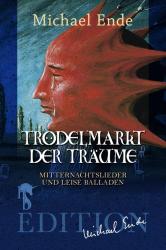
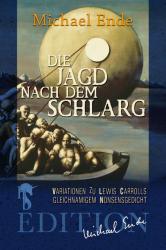
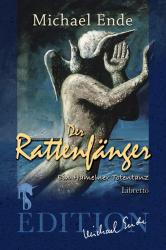
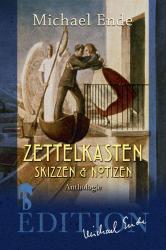
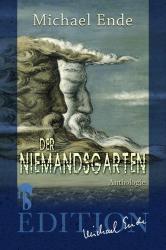
Primary Literature
-
Novels, Fairytales, Stories
-
-
Jim Knopf und Lukas der Lokomotivführer (Jim Button and Luke the Engine Driver) (Stuttgart 1960).
-
Jim Knopf und die Wilde 13 (Jim Button and the Wild 13) (Stuttgart 1962).
-
Das Schnurpsenbuch (The Nonsense Book) (Stuttgart 1969).
-
Tranquilla Trampeltreu, die beharrliche Schildkröte (Tranquilla Trampeltrue — The Persistent Tortoise)(Stuttgart 1972).
-
Das kleine Lumpenkasperle (The Little Rag Puppet) (Stuttgart 1975).
-
Das Traumfresserchen (The Dream Eater) (Stuttgart 1978).
-
Lirum Larum Willi Warum (Lirum Larum, Willi Why) (Stuttgart 1978).
-
Die unendliche Geschichte (The Neverending Story) (Stuttgart 1979).
-
Der Lindwurm und der Schmetterling oder Der seltsame Tausch (The Lindworm and the Butterfly or: The Strange Swap) (Stuttgart 1981).
-
Die Schattennähmaschine (The Shadow Sewing Machine) (Stuttgart 1982).
-
Der Spiegel im Spiegel. Ein Labyrinth (The Mirror in the Mirror. A Maze) (Surrealistic texts, Stuttgart 1984).
-
Filemon Faltenreich (Filemon Foldrich) (Stuttgart 1984).
-
Norbert Nackendick (Norbert Fatnoggin) (Stuttgart 1984).
-
Ophelias Schattentheater (Ophelia’s Shadow Theatre) (Stuttgart 1988).
-
Der satanarchäolügenialkohöllische Wunschpunsch (The Night of Wishes) (Stuttgart 1989).
-
Die Geschichte von der Schüssel und vom Löffel (The Story of the Bowl and the Spoon) (Stuttgart 1990).
-
Lenchens Geheimnis (Lenchen’s Secret) (Stuttgart 1991).
-
Der lange Weg nach Santa Cruz (The Long Way to Santa Cruz) (Stuttgart 1992).
-
Das Gefängnis der Freiheit (The Prison of Freedom) (Stuttgart 1992).
-
Der Teddy und die Tiere (The Teddy Bear and the Animals) (Stuttgart 1993).
-
Die Vollmondlegende. Bilderbuch für Erwachsene (The Legend of the Full Moon. A Picture Book for Adults) (Stuttgart 1993).
-
Die Zauberschule und andere Geschichten (The School of Magic and Other Stories) (Stuttgart 1994).
-
Der seltsame Tausch und andere Geschichten (The Strange Swap and Other Stories) (Stuttgart 1997).
-
Vom Wunsch aller Wünsche und andere Geschichten (About the Wish of all Wishes and Other Stories) (Stuttgart 1998).
-
Die Zauberschule im Wünschelreich (The School of Magic in the Realm of Wishes) (Stuttgart 1999).
-
Die Rüpelschule (The School for Louts) (Stuttgart 2002).
-
Von Schmetterlingen und weisen Elefanten (Of Butterflies and Wise Elephants), Stuttgart 2011.
-
Rodrigo Raubein und Knirps, sein Knappe (Rodrigo Roughneck and Knirps, his Varlet) (Stuttgart 2019).
-
-
Plays, Essays, Poetry, Non-Fiction
-
-
Die Spielverderber (The Spoilsports) (A play, Stuttgart 1967).
-
Edgar Ende (Stuttgart 1971).
-
Das Gauklermärchen (The Entertainer's Tale) (A play, Stuttgart 1982).
-
Mein Lesebuch (My Reader) (Anthology, Frankfurt a. M. 1983).
-
Der Goggolori – Eine bairische Mär (The Goggolori – A Bavarian Tale) (A play in eight scenes, Stuttgart 1984).
-
Die Archäologie der Dunkelheit (The Archaeology of Darkness) (Stuttgart 1985).
-
Trödelmarkt der Träume - Mitternachtslieder und leise Balladen (Flea Market of Dreams; Songs to be Sung at Midnight and Quiet Ballads) (Stuttgart 1986).
-
Die Jagd nach dem Schlarg. Variationen nach Lewis Carrolls gleichnamigem Nonsensgedicht. (The Hunting of the Snark. Variations of Lewis Carrolls Nonsense Poem by the Same Title) (Libretto, Stuttgart 1987).
-
Kunst und Politik - ein Gespräch von Joseph Beuys/Michael Ende (Art and Politics. A Conversation between Joseph Beuys and Michael Ende) (Wangen 1989).
-
Der Rattenfänger (The Pied Piper) (Libretto, Stuttgart 1993).
-
Michael Endes Zettelkasten. Skizzen und Notizen (Michael Ende’s File-Card Box. Sketches and Notes) (Stuttgart 1994).
-
Der Niemandsgarten. Aus dem Nachlass (Nobody’s Garden. Unpublished Work) (Stuttgart 1998).
-
Monogatari no yohaku (The White Rim of a Story) – a Conversation between Michael Ende and Toshio Tamura (Tokyo 2000).
-
Das große Michael Ende Lesebuch (The Big Michael Ende Reader) (München 2004).
-
-
Feature Films / Filmography
-
-
Jim Knopf und Lukas der Lokomotivführer (Jim Button and Luke the Engine Driver), Germany 1961. 5 parts with puppets.
-
Jim Knopf und die Wilde 13 (Jim Knopf and the Wild 13), Germany 1962. 5 parts with puppets.
-
Jim Knopf und Lukas der Lokomotivführer (Jim Button and Luke the Engine Driver), Germany 1977. 4 parts with marionettes from the Augsburger Puppenkiste.
-
Jim Knopf und die Wilde 13 (Jim Knopf and the Wild 13), Germany 1978. 4 parts with marionettes from the Augsburger Puppenkiste.
-
Jim Knopf, Animated picture series. Japan 1974 (Kodansha)
-
Die unendliche Geschichte (The Neverending Story), Germany 1984. Director: Wolfgang Petersen, with Barret Oliver, Gerald McRaney, Drum Garrett, Darryl Cooksey, Tilo Prückner, Heinz Reincke and others.
-
Momo, Germany 1986. Director: Johannes Schaaf, with Radost Bokel, Mario Adorf, Armin Mueller-Stahl and others.
-
Die unendliche Geschichte II. Auf der Suche nach Phantásien, (Neverending Story II. In Search of Fantastica) USA/Germany 1990. Director: George Miller, with Jonathan Brandis, Kenny Morrison, Clarissa Burt and others.
-
Die unendliche Geschichte III. Rettung aus Phantásien (Neverending Story III. Escape Fantastica), USA/Germany 1994. Director: Peter MacDonald, with Jason James Richter, Melody Kay,Jack Black, Carole Finn and others.
-
Jim Knopf, Animated picture series, Germany/France 1996. 52 parts, 25 minutes each.
-
Die unendliche Geschichte II. Das Rätsel der toten Berge. Morlas größter Wunsch. (Neverending Story II. The Enigma of the Dead Mountains. Morla’s Greates Wish) Animated picture series. USA 2001. Director: George Miller.
-
Momo, Animated picture series, Italy 2001, Director: Enzo d’ Alò.
-
Der Wunschpunsch (The Night of Wishes), Animated picture series. Germany/France 2001, Director: Philippe Amador, 3 parts.
-
Jim Knopf und Lukas der Lokomotivführer (Jim Button an Luke the Engine Driver), Germany 2018.
-
Jim Knopf und die Wilde 13 (Jim Button and the Wild 13), Germany 2020.
-
-
Selection: Radio plays / Readings
-
-
For a complete register of all adaptations consult Deutsche Rundfunkarchiv (German Radio Archive): Rzeszotnik, Jacek: Zwischen Phantasie und Realität. Michael Ende Gedächtnisband 2000 (Between Imagination and Reality. Michael Ende Memorial Collection 2000) Passau 2000. (= Fantasia 136/137; Schriftenreihe Volume 35), Pages 291-297.
-
Radio Play: Der Teddy und die Tiere (The Teddy Bear and the Animals): a fairytale with a lot of music. Narrator: Michael Ende. International 1991.
-
Radio Play: Der Rattenfänger: Ein Hamelner Totentanz (The Pied Piper. A Danse Macabre from Hamelin) Music: Wilfried Hiller. Libretto: Michael Ende. With Giora Feidman, Martha Mödl, Zelotes Edmund Toliver. Philharmonisches Orchester Dortmund. Conductor: Laurent Wagner. Production: Heinz Lukas-Kindermann. Pläne 1993.
-
Radio Play: Lenchens Geheimnis (Lenchen’s Secret): Original radio play after the book by Michael Ende. Adapted and directed by: Hans-Joachim Herwald. Sprecher: Wolff Frass, Laura Katzer, Thomas Kröger. Karussell 1999.
-
Radio Play: Der lange Weg nach Santa Cruz (The Long Way to Santa Cruz): A radio play for children after the book by Michael Ende and Regina Kehn. Radio play adaptation: Hans-Joachim Herwald. Speakers: Hans Wockert, Holger Potzern, Renate Simonson. Karussell 1999.
-
Radio Play: Die Zauberschule im Wünschelreich (The School of Magic in the Realm of Wishes): Original radio play after the book by Michael Ende. Adapted and directed by Hans-Joachim Herwald. Spreakers: Achim Schülke, Günther Lüdke, Kaya Möller. Karussell 1999.
-
CD-Rom: Das Traumfresserchen (The Dream Eater) by Michael Ende. Narrator: Rufus Beck, edited by Franz-Maria Sonner. Terzio-Verl. 1999.
-
Radio Play: Die Ballade von Norbert Nackendick oder Das nackte Nashorn. (The Ballad of Norbert Fatnoggin or the Naked Rhinoceros) Wilfried Hiller, Josef Manoth, Hanno Blaschke. Polygram 1994.
-
Radio Play: Der Lindwurm und der Schmetterling oder Der seltsame Tausch (The Lindworm and the Butterfly or the Strange Swap). Set in music by Wilfried Hiller. [Interprets:] Michael Ende, Matthias Hüttenhofer, Dankward Schmidt. 1995. In: Tranquilla Trampeltreu, die beharrliche Schildkröte (Tranquilla Trampeltrue — The Persistent Tortoise). A musical fable in rondo fashion by Michael Ende and Wilfried Hiller. Polygram 1995.
-
Radio Play: Tranquilla Trampeltreu, die beharrliche Schildkröte (Tranquilla Trampeltrue — The Persistent Tortoise): A musical fable in rondo fashion by Michael Ende and Wilfried Hiller. [Interprets:] Michael Ende, Marianne Brandt, Michael Hoffmann. [Polygram] 1995.
-
Reading: Ophelias Schattentheater (Ophelia’s Shadow Theatre). Reading by Michael Ende. Karussell 1999.
-
Radio Play: Teddy Washable: A story with lots of cheerful music by Michael Ende. Narrator: Hans Clarin. Koch Classics 2000.
-
Musical: Jim Knopf und Lukas der Lokomotivführer (Jim Button and Luke the Engine Driver): The musical by and with Christian Berg. Music: Konstantin Wecker. After the book by Michael Ende. Karussell 1999.
-
Musical: Jim Knopf und die Wilde 13 (Jim Knopf and the Wild 13: The musical by and with Christian Berg. Music: Konstantin Wecker. After the book by Michael Ende. Singers: Ulrich Thon, Ralph Aschhoff, Thandiwe Braun. Karussell 2000.
-
Musical: Jim Knopf & Co.: Cult musical tunes for children. Swiss German by Jörg Schneider & Emil Moser. Music: Emil Moser. Lyrics and story: Jörg Schneider. Interprets: Jörg Schneider, Walter Andreas Müller, Christian J. Jenny. Universal Music Switzerland 2001.
-
Musik: Das Land Phantásien (The Land Fantastica): A fantasy for orchestra after “Neverending Story” by Michael Ende. by Siegfried Matthus. Narrator: Michael Heltau. Bruckner Orchester Linz. [Conductor:] Ingo Ingensand. Edel 2002.
-
Radio Play: Ein sehr kurzes Märchen. Ein Schnurps grübelt. (A Very Short Fairytale. A Schnurps is Thinking) Spoken by Donata Höffer, Peter Franke and children. In: Dunkel war's, der Mond schien helle (Dark it was, but brightly the moon was shining): Verses, rhymes and poems (2001).
-
Audio text: Die unendliche Geschichte (Neverending Story). In: Audio texts for the German textbook: Poems, fairytales, fables, legends, extracts from children’s books, stories; comments and suggestions for teaching. (2003).
-
CD-Rom: Jim Knopf und Lukas, der Lokomotivführer (Jim Button and Luke the Engine Driver). Concept and screenplay: Sylvia Franz, Urs M. E. Streidl, Katrin Hessing 2003.
-
Radio Play: Traumfrässerli (The Dream Eater). Told in Swiss German by Jolanda Steiner. With songs by Marie Luise Werth. Narrated, directed and adapted in dialect by Jolanda Steiner. Thienemann 2003.
-
Radio Play: Der Spiegel im Spiegel (The Mirror in the Mirror): a selection of texts. Speaker: Dieter Mann. Music: Arndt Werner Bethke, Klaus Feldmann 2003.
-
DVD: Die unendliche Geschichte: die Abenteuer gehen weiter (Neverending Story: The Adventures Go on). After Motives from the bestselling novel by Michael Ende. Directors: Giles Walker und Adam Weissman 2004.
-
Secondary Literature
-
General literature regarding Michael Ende
-
- Acosta, Pedro: "Utopías positivas" en la literatura alemana ("Positive Utopias" in German Literature). In: Bestandsaufnahme der Germanistik in Spanien (2010), pages 529-538.
-
Aschenberg, Heidi: Eigennamen im Kinderbuch (Characters’ Names in Children’s Books). A linguistic thesis. Tübingen 1991. (= Tübinger Beiträge zur Linguistik; 351).
-
Peter Boccarius: Michael Ende: der Anfang der Geschichte (Michael Ende: The Beginning of the Story). With a new epilogue. Frankfurt/Main. 1995.
-
Berger, Klaus: Michael Ende. Heilung durch magische Phantasie (Healing with Magic Imagination). Bielefeld 1988. (= TELOS; 2531).
-
Berger-Faragó, Gabriele: Zeit. Menschliches Maß, kosmische Kraft oder Geschenk Gottes? (Time. Human Measure, Cosmic Power or a Present of God?): Augustin, Michael Ende, Eilert Herms and Kohelet about Time and Eternity). Stuttgart 2003.
-
Classen, Albrecht: Das Fragment als literarische Strategie (The Fragment as a Literary Strategy): Thoughts about Robert Musil, Thomas Mann, Hermann Hesse und Michael Ende. In: Germanic notes and reviews 26 (1995), No. 2, pages 114-126.
-
Ester, Hans: Gespräch mit Michael Ende (Conversation with Michael Ende). In: Deutsche Bücher 23, Edition. 3, (1993), pages 175-189.
-
Etten, Jonas: Schreiben für "das Kind in uns allen" (Writing for the "Child in us all"): Metafiction and Childhood in the Works of Michael Ende and William Goldmann. Marburg 2013.
-
Ewers, Hans-Heino: Die Kinder, die nicht erwachsen werden (The Children that Don't Grow Up): the Genius Figure of the Eternal Child in the Works of Goethe, Tieck, E.T.A. Hoffmann, J.M. Barrie, Ende and Nöstlinger. In: Kinderwelten. Kinder und Kindheit in der neueren Literatur (Children's Worlds. Children and Childhood in Recent Literature). Festschrift for Klaus Doderer, ed. by Margarete Dierks and Klaus Doderer. Weinheim [u. a.] 1985.
-
Ewers, Hans-Heino: Michael Ende neu entdecken (Re-discovering Michael Ende): What Jim Knopf, Momo, and The Neverending Story Have to Say To Adults. Stuttgart 2018.
-
Ewers, Hans-Heino: Michael Ende. Zur Aktualität eines Klassikers von internationalem Rang (Michael Ende: On the Topicality of a Classic of International Standing). Berlin 2020.
-
Frömmig, Peter: Wer war ... Michael Ende? (Who was … Michael Ende) In: Der Literat 42, Edition. 9, (2000), pages 14-16.
-
Gaisbauer, Gustav (Editor): Der zweite Kongreß der Phantasie: Erster Deutscher Fantasy-Club (The Second Congress of Fantasy: First German Fantasy Club). Passau 1989. [Containing among others: Awarding ceremony of German Fantasy Award 1987 to Michael Ende, pages 17-22; awarding ceremony of German Fantasy Award 1988 to Frederik Hetmann, pages 23-27].
-
Gulli, Elena: Der rote Faden bei Italo Calvino und Michael Ende: Zwei Autoren im Vergleich (The Central Thread in Works by Italo Calvino and Michael Ende: Two Authors in Comparison). Ann Arbor, Mich.: University Microfilms International 1998. (Halifax, Diss.).
-
Haas, Gerhard: Michael Ende und die phantastische Jugendliteratur der achtziger und neunziger Jahre in Deutschland (Michael Ende and the Fantastic Children’s Literature of the Eighties and Nineties in Germany). In: Aus "Wundertüte" und "Zauberkasten" (Out of “Surprise Bag” and “Magic Box”), edited by Henner Barthel and others. Frankfurt/Main. 2000, pages 331-348.
-
Hector, Robert: Die „Science“ im Werk von Michael Ende oder: Die „Science of Wonder“ der Kindheit (The Science in the Work of Michael Ende or: The Science of Wonder in Childhood). In: Zwischen Phantasie und Realität. Michael Ende Gedächtnisband 2000 (Between Imagination and Reality. Michael Ende Memorial Collection), edited by Jacek Rzeszotnik. Passau 2000. (= Fantasia 136/137; Schriftenreihe Volume 35), pages 179-199.
-
Hetmann, Frederik: Die Freuden der Fantasy. Von Tolkien bis Ende (The Joys of Fantasy. From Tolkien to Ende). Frankfurt/Berlin/Wien 1984.
-
Hirota, Yasuyuki: Michael Endes Sicht der Ökonomie (Michael Ende’s View of Economics). An essay based on Michael Ende’s work as far as available in Japan. In: Zwischen Phantasie und Realität. Michael Ende Gedächtnisband 2000 (Between Imagination and Reality. Michael Ende Memorial Collection), edited by Jacek Rzeszotnik. Passau 2000. (= Fantasia 136/137; Schriftenreihe Volume 35), pages 209-227.
- Hocke, Roman: Von der Wirklichkeit der Phantasie. Ein Nachruf auf Michael Ende. (On the Reality of Fantasy. An Obituary for Michael Ende) In: Literatur in Bayern, H. 42 (1995), pages 62-68.
-
Hocke, Roman / Kraft, Thomas: Michael Ende und seine phantastische Welt: die Suche nach dem Zauberwort (Michael Ende and his Fantastic World: The Search for the Magic Word). Stuttgart/and others 1997.
-
Hübner, Eberhard: Phantastische Literatur, Sittenwächter oder Irritation (Fantastic Literature, Guardian of Public Morals or Irritation?) In: Literatur konkret Volume 10, (1985/86), pages 23-27.
-
Kaiser-Braulik, Margarete: Michael Ende und die Musik (Michael Ende and the Music). In: 1000 und 1 Buch 2000, Volume 4, pages 17-24.
-
Kaminski, Winfred: Das Innenbild der Außenwelt (The Inner Picture of the Outer World): Annotations about the children’s characters in the work of Michael Ende. In: Kinderwelten (Children’s Worlds), edited by Freundeskreis des Instituts für Jugendbuchforschung. Frankfurt 1985, pages 71-85.
-
Kaminski, Winfred: Meister der Phantastik. Zum Tod von Michael Ende (Master of Fantasy. On the Death of Michael Ende). In: Börsenblatt für den deutschen Buchhandel, Nr. 72 (1995), pages 12-13.
-
Kaminski, Winfred: Einführung in die Kinder- und Jugendliteratur. Literarische Phantasie und gesellschaftliche Wirklichkeit (Introduction to Children's and Youth Literature. Literary Fantasy and Social Reality ). Weinheim, München 1998.
-
Kaminski, Kristina: Michael Endes Rudolf Steiner Rezeption: am Beispiel der Darstellung von Innenwelt in der Unendlichen Geschichte (Michael Ende’s Reception of Rudolf Steiner, Using the Example of the Presentation of the Inner World in Neverending Story). Munich 2002.
-
Krätzer, Jürgen: Kunst ist ein Übersetzungsprozeß (Art is a Process of Translation): Conversation with Michael Ende. In: Deutschunterricht (Teaching German) 47, Edition 7/8 (1994), pages 338-345.
-
Kreuzer, Franz: Zeit-Zauber. Unser Jahrhundert denkt über das Geheimnis der Uhren nach / Franz Kreuzer im Gespräch mit Michael Ende und Bernulf Kanitscheide (Time-Magic. Our Century Contemplates the Mystery of the Clocks / Franz Kreuzer in Conversation with Michael Ende and Bernulf Kanitscheide). ORF: Wien 1984.
-
Kröll, David: Rettungswege aus der Wirklichkeit? – Perspektiven und Gefahren fantastischer Jugendliteratur (Escape Routes from Reality? – Perspectives and Dangers of Fantastic Youth Literature). Marburg 2009.
-
Kruschel, Karsten: Mandalinische Ohrputzer und die Wunderkisten der Wissenschaft (Mandalinic Ear Cleaners and the Magic Boxes of Science). In: In: Zwischen Phantasie und Realität. Michael Ende Gedächtnisband 2000 (Between Imagination and Reality. Michael Ende Memorial Collection), edited by Jacek Rzeszotnik. Passau 2000. (= Fantasia 136/137; Schriftenreihe Volume 35), pages 167-179.
-
Kulik, Nils: Das Gute und das Böse in der phantastischen Kinder- und Jugendliteratur (Good and Evil in Fantastic Literature for Children and Young Readers): a study regarding the work of Joanne K. Rowling, J. R. R. Tolkien, Michael Ende, Astrid Lindgren, Wolfgang and Heike Hohlbein, Otfried Preußler and Frederik Hetmann. Frankfurt/Main 2005 (= Kinder- und Jugendkultur, -literatur und -medien; 33). (Zugl.: Univ. Diss. Oldenburg 2004).
-
Lindner, Christian: "Auch in mir ist niemand" ("There is no one in me either"): from Conversations with Michael Ende in Genzano di Roma. In: Noten an den Rand des Lebens. Berlin 2001, pages 514-534.
-
Meyer-Gosau, Frauke: Der Mann, der Jim Knopf erfand (The Man that Created Jim Knopf). Jim Knopf has just turned fifty – no less amazing than the story of the black orphan boy from the mail parcel is that of its author Michael Ende, In: Literaturen 11, H. 6 (2010), pages 58-63.
-
Mittelstaedt, Robert: Michael Endes letzten Worte an die Japaner (Michael Ende’s Last Words to the Japanese). In: Zwischen Phantasie und Realität. Michael Ende Gedächtnisband 2000 (Between Imagination and Reality. Michael Ende Memorial Collection), edited by Jacek Rzeszotnik. Passau 2000. (= Fantasia 136/137; Schriftenreihe Volume 35), pages 199-209.
- Müllneritsch, Helga: Die unbekannte Seite Michael Endes (The Unknown Side of Michael Ende): On Symbolism in the Story Collection "The Mirror in the Mirror. A Labyrinth" Wetzlar 2011.
-
Munsonius, Jörg Martin: Zum Tod von Michael Ende (The Death of Michael Ende). In: Fantasia, H. 97/98 (1996), pages 17-21.
-
Rätsch, Silvia H.: Unendlicher Erfolg: am 12. November 1994 feierte Michael Ende seinen 65. Geburtstag (Neverending Success: On 12 November 1994 Michael Ende was Celebrating his 65th Birthday). In: Literatur in Bayern Edition 38, 43 (1994).
-
Pandikattu SJ, Kuruvilla: Zum Verständnis unserer Zeit als Phänomen der Zeit(About the Understanding of Our Time as a Phenomenon of Time). A modern myth. In: Zwischen Phantasie und Realität. Michael Ende Gedächtnisband 2000 (Between Imagination and Reality. Michael Ende Memorial Collection), edited by Jacek Rzeszotnik. Passau 2000. (= Fantasia 136/137; Schriftenreihe Volume 35), pages 49-65.
-
Pfennig, Daniela: Parallelwelten. Raumkonzepte in der fantastischen Kinder- und Jugendliteratur der Gegenwart (Parallel Worlds. Spatial Concepts in Contemporary Fantastic Children's and Youth Literature). Marburg 2013.
-
Prinz, Alois: Rebellische Söhne (Rebellious Sons). The Biographies of Hermann Hesse, Bernward Vesper, Franz von Assisi, Martin Luther, Franz Kafka, Klaus Mann, Michael Ende and their Fathers. Weinheim/Basel 2010.
-
Putzke, Rebekka: Fantastica as a Place of Games. Nonsense in the Works of Michael Ende. In: Nonsense and Other Senses. Regulared Absurdity in Literature, ed. by Elisabetta Tarantino. Newcastle upon Tyne 2009, p. 335-353.
-
Rätsch, Silvia H.: Unendlicher Erfolg (Neverending Success): On 12 November 1994, Michael Ende Celebrated his 65. Birthday. In: Literatur in Bayern H. 38, 43 (1994).
-
Rehlinger, Oliver: Im Kettenhemd der Phantasie: zu einigen Bildern Michael Endes (In the Chain Mail of Imagination: About some of Michael Ende’s Images). In: Kürbiskern, Edition 4, (1987), pages 114-123.
-
Roeder, Caroline: Phantastisches im Leseland (Fantastic in the Land of Reading). The Development of Fantastic Children's Literature in the GDR (including the SBZ). A Genre-Historical Analysis. Frankfurt am Main 2006.
-
Roeder, Caroline: Stoyan, Hajna: The Fantastic Children's Books by Michael Ende [Review]. In: Beiträge Jugendliteratur und Medien 58, H. 2 (2006), pages 137-138.
-
Rottensteiner, Franz: Einige Bemerkungen zu Michael Ende (Some Comments about Michael Ende). In: Zwischen Phantasie und Realität. Michael Ende Gedächtnisband 2000 (Between Imagination and Reality. Michael Ende Memorial Collection 2000), edited by Jacek Rzeszotnik. Passau 2000. (= Fantasia 136/137; Schriftenreihe Volume 35), pages 235-243.
-
Rzeszotnik, Jacek (Editor): Zwischen Phantasie und Realität: Michael Ende Gedächtnisband 2000 (Between Imagination and Reality. Michael Ende Memorial Collection 2000). Passau 2000. (= Fantasia 136/137; Schriftenreihe Volume 35).
-
Scherf, Walter: Zwiesprache mit dem einsamen Kind in sich (Conversation with the Lonely Child in Us). In: Michael Ende zum 50. Geburtstag (Michael Ende to his 50th Birthday), edited by Hans-Jörg Weitbrecht and others, Stuttgart 1979, pages 44-48.
-
Schipperges, Ines: Ende gut, alles gut? (All's Well that Ends Well?) – Conflict, Turning Point and Salvation as Dramatic Moment in Works of Erich Kästner, Michael Ende and Cornelia Funke. Hamburg 2013.
-
Schmitz-Emans, Monika: Alte Mythen – neue Mythen (Old Myths – New Myths): Lovecraft, Tolkien, Ende, Rowling. In: Chiffre 2000 (2005), pages 203-220.
-
Schröder, Wolfgang: Hingabe, Distanz oder Desinteresse: Entwurf eines Lesertypenmodells aus Beispiel dargestellten Lesens bei Michael Ende, Alfred Andersch und anderen (Devotion, Distance of Lack of Interest: Draft of a Model of Reader Types Using Examples of Documented Reading by Michael Ende, Alfred Andersch and Others) . In: Der Deutschunterricht (Teaching German) 40, Edition 4, (1988), pages 9-20.
-
Stoyan, Hajna: Die phantastischen Kinderbücher von Michael Ende (The Fantastic Children’s Theory by Michael Ende): with an introduction about the development of gender theories and an excurse about the fantastic children’s literature in the GDR. Frankfurt/Main and others. 2004. (Zugl.: Univ. Diss. Budapest 2002).
-
Stoyan-Peér, Hajna: Zur Wiederaufnahme romantischer Traditionen bei Michael Ende (About the Resumption of Romantic Traditions in Michael Ende’s Work). In: Jahrbuch der ungarischen Germanistik (Yearbook of Hungarian German Studies) 1998, pages 175-189.
-
Tabbert, Reinbert: Zwischen Kinderzimmer und literarischem Salon (Between Children’s Room and Literary Salon): Thoughts about Michael Ende. In: Beiträge Jugendliteratur und Medien (Contributions Regarding Children’s Literature and Media) 48, Volume 1 (1996), pages 26-34.
-
Tamura, Toshio: Ende o tabisuru (A Journey through the Inner Landscapes of Michael Ende ). Kibou to shiteno kotoba no uchuu (The Universe of the Language as Hope), 2004.
-
Vogdt, Herbert / Ende, Michael: Wie Shakespeare über die Rampe gekommen (Coming over the Ramp Like Shakespeare): Interview with Michael Ende about his life, his work. In: Börsenblatt für den Deutschen Buchhandel 41, Edition 25 (1985), pages 920-933.
- Voswinckel, Ulrike: "Klopfzeichen" ("Knocking Signs"). Michael Ende and Willfried Hiller. München 2006.
-
Weenolsen, Patricia: The Influence of Parental Death on Identity Formation, pages 124-128. Proceedings of the 13th Annual Conference of the Children's Literature Association, ed. by Susan R Gannon / Ruth Anne Thompson. University of Missouri-Kansas City, May 16-18, 1986. West Lafayette: Educ. Dept., Purdue Univ., 1988.
- Wehdeking, Volker: Hermann Hesse und Michael Ende als "Crosswriter" (Hermann Hesse and Michael Ende as "Crosswriters"): Ende's Highly Literary Ambitions and Both's Worldwide Reception with a Double Addressee. In: Licht aus dem Osten?, ed. by Volker Wehdeking. Marburg 2012, pages 237-293.
-
Weitbrecht, Hans-Jörg and others. (Editor): Michael Ende zum 50. Geburtstag (Michael Ende to his 50th Birthday). Stuttgart 1979.
-
Wernsdorff, Christian von: Bilder gegen das Nichts (Images against the Nothing): about the return of the Romantic age in the Work of Michael Ende and Peter Handke. Neuss 1983.
-
Wilke, Sabine: Poetische Strukturen der Moderne: zeitgenöss. Literatur zwischen alter und neuer Mythologie (Poetic Structures of the Modern Age. Contemporary Literature between Old and New Mythology). Stuttgart and others 1992.
-
Zidarova, Bogdana: Spasenieto na stranata Fantaziia: Po povod Bezkraina istoriia na Mikhael Ende. Literaturen Front: Organ na Suiuza na Bulgarskite Pisateli, 38:34 (1982), p. 7.
-
Jim Knopf
-
-
Beer, Werner: Michael Ende und sein Jim Knopf (Michael Ende and his Jim Knopf). In: Handbuch der Literatur in Bayern: Vom Frühmittelalter bis zur Gegenwart: Geschichte und Interpretationen (Handbook of Literature in Bavaria: From the Early Middle Ages to Present Times. History and Interpretation), edited by Albrecht Weber. Regensburg 1987, pages 635-649.
-
Friedrich, Fabian Michael / Ebbinghaus, Meike: Jim Knopf: über Michael Endes „Jim Knopf und Lukas der Lokomotivführer“ und „Jim Knopf und die Wilde 13“. (Jim Knopf: About Michael Ende’s “Jim Button and Luke the Engine Driver” and “Jim Knopf and The Wild 13) Passau 2004.
-
Karwath, Bernd: Auf den Spuren des Jim Knopf (Following the Trail of Jim Knopf). Thoughts about a “children’s book”. In: Zwischen Phantasie und Realität. Michael Ende Gedächtnisband 2000 (Between Imagination and Reality. Michael Ende Memorial Collection 2000), edited by Jacek Rzeszotnik. Passau 2000. (= Fantasia 136/137; Schriftenreihe Volume 35), pages 29-49.
-
Lehmann, Konrad: Endes Anfang. "Jim Knopf" als programmatischer Roman (Ende's Beginning. "Jim Knopf" as a Programmatic Novel). In: Fantasia 202-203 (2006), pages 187-194.
-
Ruzicka Kenfel, Veljka: "Jim Botón", de Michael Ende: un clásico para todas las edades (Michael Ende's "Jim Button": A Classic for All Ages). In: La palabra en el texto (2011), pages 143-155.
-
Tabbert, Reinbert: Jim Knopf und die komisch-phantastische Kinderliteratur (Jim Knopf and the Humorous-Fantastic Children’s Literature). In: Phantastische Kinder- und Jugendliteratur und Märchen. Tagungsbericht der Internationalen Jugendbuchtagung (Fantastic Children’s Literature and Fairytales, Congress Report from the International Congress for Children’s Books), edited by Elisabeth Leimgruber and Kurt Waldner. Bern 1982, pages 55-70.
-
Tabbert, Reinbert: Jim Knopf, Michael Ende und die Lust am Funktionieren (Jim Knopf, Michael Ende and the Lust of Functioning). In: Michael Ende zum 50. Geburtstag (Michael Ende to his 50th Birthday), edited by Hans-Jörg Weitbrecht and others. Stuttgart 1979, pages 13-35.
- Voss, Julia: Darwins Jim Knopf. Frankfurt am Main 2009.
-
-
Momo
-
-
Armer, Karl Michael: Auf der Suche nach der gefrorenen Zeit. Von der Unmöglichkeit surrealistischer Literatur (The Search for the Frozen Time. About the Impossibility of Surrealistic Literature). In: In: Zwischen Phantasie und Realität. Michael Ende Gedächtnisband 2000 (Between Imagination and Reality. Michael Ende Memorial Collection 2000), edited by Jacek Rzeszotnik. Passau 2000. (= Fantasia 136/137; Schriftenreihe Volume 35), pages 161-167.
-
Böhme, Gernot: Zeitphilosophie in Michael Endes "Momo" (Philosophy of Time in Michael Ende's "Momo). In: Philosophie im Spiegel der Literatur (2007), pages 79-89.
-
Doderer, Klaus: Michael Ende - der weite Weg in Momos Heimat. (Michael Ende – the Long Journey to Momo’s Homeland) In: Reisen in erdachtes Land. Literarische Spurensuche vor Ort(Journeys into Imaginary Countries. Literary Search for Traces). Essays, edited by Klaus Doderer. Munich 1998, pages 252-262 and 310-311.
-
Kiss, Kathrin: Nahrung Zeit: über das Zusammenspiel zwischen Eßakten und Identität in den Kinderbüchern 'Pippi Langstrumpf' und 'Momo'(Nourishment Time. About the Interaction between Acts of Eating and Identity in the Children’s Books “Pippi Langstrumpf” and “Momo”). In: Z 4, H. 13 (1997), pages 61-72.
-
Kulik, Nils: Das Gute und das Böse in der phantastischen Kinder- und Jugendliteratur (Good and Evil in Fantastic Literature for Children and Young Readers): a study regarding the work of Joanne K. Rowling, J. R. R. Tolkien, Michael Ende, Astrid Lindgren, Wolfgang and Heike Hohlbein, Otfried Preußler and Frederik Hetmann. Frankfurt/Main 2005 (= Kinder- und Jugendkultur, -literatur und -medien; 33). (Zugl.: Univ. Diss. Oldenburg 2004).
- Marstaller, Sophia: "Momo" – ein kleines Mädchen ganz groß ("Momo" – a little girl big time). In: Neue Buchgeschichten (2012), pages 10-13.
-
McGowan, Moray: Unendliche Geschichte für die Momo-Moderne? (Neverending Story for the Modern Age of Momo?): Reception context for the fairytale success of Botho Strauß. In: TheaterZeitSchrift Volume 15 (1986), pages 88-106.
- Mikota, Jana: Zeitdiebe in unterschiedlichen Jahrzehnten (Time Thieves in Different Decades). Narratological Investigations on Time – Space – Figure in Selected Examples. In: Kinder- und Jugendliteratur und Narratologie 2009, pages 67-79.
-
Pandikattu SJ, Kuruvilla: Momo: Eine zeitgenössische Kritik der modernen Kultur. (Momo: A Contemporary Review of Modern Culture) In: Zwischen Phantasie und Realität. Michael Ende Gedächtnisband 2000 (Between Imagination and Reality. Michael Ende Memorial Collection 2000), edited by Jacek Rzeszotnik. Passau 2000. (= Fantasia 136/137; Schriftenreihe Volume 35), pages 81-99.
-
Ruzicka Kenfel, Veljka: Poetización de la vida: aspectos románticos en 'Momo' y 'La historia interminable' de Michael Ende. In: Romanticismo y fin de siglo, ed. Gabriel Oliver (coords.) 1992, pages 401-407.
- Ruzicka Kenfel, Veljka: "Momo", novela cuento de hagas versus "Momo", el libro de la película ("Momo", the Fairytale Novel, versus "Momo", the Book to the Movie). In: Diálogos intertextuales; 1: De la palabra a la imagen, ed. Carmen Becerra Suárez. Frankfurt am Main 2010, pages 81-93.
-
Sahmel, Karl-Heinz: „Momo“ oder: Pädagogisch relevante Aspekte des Problems der Zeit (Momo or: Pedagogically Relevant Aspects of the Problem of Time) . In: Pädagogische Rundschau 42 (1988), pages 403-419.
-
Staesche, Monika: Momo. In: Zwischen Phantasie und Realität. Michael Ende Gedächtnisband 2000 (Between Imagination and Reality. Michael Ende Memorial Collection 2000), edited by Jacek Rzeszotnik. Passau 2000. (= Fantasia 136/137; Schriftenreihe Volume 35), pages 245-247.
-
-
Die unendliche Geschichte (Neverending Story)
-
- Baumann, Tania: I nomi in "Die unendliche Geschichte" di Michael Ende: analisi e riflessioni traduttologiche (The Names in "The Neverending Story" by Michael Ende: Translatological Analyses and Reflections). In: Il nome nel testo 11 (2009), pages 213-224.
-
Baumgärtner, Alfred Clemens: Phantàsien, Atlantis und die Wirklichkeit der Bilder (Fantastica, Atlantis and the Reality of Images). Notes while reading and re-reading Michael Ende’s “Neverending Story”, in: Michael Ende zum 50. Geburtstag (Michael Ende to his 50th Birthday), Stuttgart 1979.
-
Binder, Alwin: Michael Endes 'Unendliche Geschichte' als "Schule der Phantasie" (Michael Ende’s “Neverending Story” as a “School of Imagination”? In: Diskussion Deutsch 16 (1985), pages 585-598.
-
Bosmajian, Hamida: Grief and Its Displacement through Fantasy in Michael Ende's The Neverending Story, pages 120-123. Proceedings of the 13th Annual Conference of the Children's Literature Association, ed. by Susan R. Gannon / Ruth Anne Thompson. University of Missouri-Kansas City, May 16-18, 1986. West Lafayette: Educ. Dept., Purdue Univ. 1988.
- Chelebourg, Christian: "Mort le l'auteur" et "fin de l'histoire" dans "Die unendliche Geschichte" de Michael Ende. In: Interférences littéraires 5 (2010), pages 185-196.
-
Duenas, Daniel Gonzàles: Unerwartete Spiegelungen (Unexpected Reflection): Observations about “Neverending Story” by Michael Ende. In: Zwischen Phantasie und Realität. Michael Ende Gedächtnisband 2000 (Between Imagination and Reality. Michael Ende Memorial Collection 2000), edited by Jacek Rzeszotnik. Passau 2000. (= Fantasia 136/137; Schriftenreihe Volume 35), pages 113-125.
-
Elgohary, Baher M.: Die Phantastik in der deutschen Gegenwartsliteratur am Beispiel von Michael Endes „Unendlicher Geschichte“ (Fantasy in German Contemporary Literature, Using the Example of Michael Ende’s “Neverending Story”). In: Kairoer germanistische Studien (Cairo German Studies) 6 (1991), pages 569-574.
-
Filmer, Kath: Religion and Romanticism in Michael Ende's The Neverending Story. Mythlore: A Journal of J. R. R. Tolkien, C. S. Lewis, Charles Williams, and the Genres of Myth and Fantasy Stu, 18/1 [67] (1991 Autumn), pages 59-64.
-
Gaiser, Gottlieb: Michael Endes „Die unendliche Geschichte“ im projektorientierten Deutschunterricht auf der Unterstufe (Michael Ende’s “Neverending Story” in Project Orientated Teaching of German in Key Stage 3) . In: Diskussion Deutsch 16 (1985), pages 599-619.
-
Gansel, Carsten: Phantastisches und Michael Endes „Die unendliche Geschichte“ (The Fantastic and Michael Ende’s “Neverending Story”) In: Schauplatz / Red.: Joachim Schmidt 1988, Volume 2, pages 67-87.
-
Göbel, Klaus: Phantastisch-utopische Literatur und Fantasy-Vermarktung (Fantastic-Utopian Literature and Fantasy Marketing): about the FSK-releasing for children of the feature film “Neverending Story”. In: Wirkendes Wort 35 (1985), pages 416-426.
-
Götze Martin: Roman der Einbildungskraft. Zu Michael Endes "Unendlicher Geschichte" (A Novel of the Imagination. On Michael Ende's "Neverending Story"). In: Literatur und Ästhetik (2008), pages 165-185.
-
Gronemann, Helmut: Phantásien: das Reich des Unbewußten (Fantastica: The Realm of the Subconscious); „Neverending Story“ by Michael Ende from the perspective of depth psychology. Zurich 1985.
- Hässner, Wolfgang: Ende, Michael: Die unendliche Geschichte [Review]. In: Deutschunterricht 43 (1990), pages 138-139.
-
Herzig-Danielson, Viola: Winnetou in Phantásien (Winnetou in Fantastica) Interaction of biblio-therapy and literature science, using the examples of the "Winnetou"-trilogy by Karl May and the novel "Neverending Story" by Michael Ende. Hamburg 2004. (Zugl.: Univ. Diss. Dortmund 2003). Hörisch, Jochen: Die alltägliche Wiederkehr des Einhorns in der „Unendlichen Geschichte“ (The Daily Return of the Unicorn in “Neverending Story): Akten des VII. Internat. Ger.-Kongresses, Göttingen 1985, pages 234-240.
- Hörisch, Jochen: Die alltägliche Wiederkehr des Einhorns in der „Unendlichen Geschichte“ (The Everyday Return of the Unicorn in the "Neverending Story"): Akten des VII. Internat. Ger.-Kongresses, pages 234-240.
-
Kuckartz, Wilfried: Michael Ende, „Die unendliche Geschichte“. Ein Bildungsmärchen (Michael Ende: “Neverending Story” A Formation Fairytale). Essen 1984. (= Pädagogik des Vorbilds; 1).
-
Kulik, Nils: Das Gute und das Böse in der phantastischen Kinder- und Jugendliteratur (Good and Evil in Fantastic Literature for Children and Young Readers): a study regarding the work of Joanne K. Rowling, J. R. R. Tolkien, Michael Ende, Astrid Lindgren, Wolfgang and Heike Hohlbein, Otfried Preußler and Frederik Hetmann. Frankfurt/Main 2005 (= Kinder- und Jugendkultur, -literatur und -medien; 33). (Zugl.: Univ. Diss. Oldenburg 2004).
- Kuttor, Eszter: Namensgebung in Phantásien. Übersetzungsmöglichkeiten der literarischen Eigennamen (Naming in Fantastica. Translation possibilities of the Literary Proper Names). In: Interdisziplinarität in der Germanistik (2010), pages 227-231.
-
Lehnert, Gertrud: Moderne und postmoderne Elemente in der „phantastischen“ Kinderliteratur des 20. Jh. (Modern and Post-modern Elements of the “Fantastic” Children’s Literature of the 20th Century) In: Kinderliteratur und Moderne: ästhetische Herausforderungen für die Kinder-Literatur im 20. Jahrhundert (Children’s Literature and the Modern Age: Aesthetic Challenges for the Children’s Literature of the 20th Century), edited by Hans-Heino Ewers. Weinheim 1990, pages 175-195.
-
Lohne, Bente: En fantastisk og uendelig historie. Samtiden: Tidsskrift for Politikk, Litteratur og Samfunnssporsmal, 93:6 (1984), pages 70-74.
-
Ludwig, Claudia: Was du ererbt von deinen Vätern hast... Michael Endes Phantásien - Symbolik und literarische Quellen (What You have Inherited from your Fathers … Michael Ende’s Fantastica – Symbolism and Literary Sources). Frankfurt/Main and others 1988. (= Europäische Hochschulschriften; Reihe 1, Deutsche Sprache und Literatur; 1071).
-
Lugowska, Jolanta: Bastian Baltasar Bux’ Eintritt ins Märchen (Bastian Balthasar Bux’s Entry into the Fairytale). In: Zwischen Phantasie und Realität. Michael Ende Gedächtnisband 2000 (Between Imagination and Reality. Michael Ende Memorial Collection 2000), edited by Jacek Rzeszotnik. Passau 2000. (= Fantasia 136/137; Schriftenreihe Volume 35), pages 125-143.
-
McGowan, Moray: Unendliche Geschichte für die Momo-Moderne? (Neverending Story for the Modern Age of Momo?): Reception context for the fairytale success of Botho Strauß. In: TheaterZeitSchrift Edition 15 (1986), pages 88-106.
- Müller, Linda: Einmal Phantásien und zurück: Michael Endes "Unendliche Geschichte" (Once to Fantastica and Back Again: Michael Ende's "Neverending Story"): Backgrounds, Literary Influences and References to Reality. Marburg 2013.
-
Müske, Eberhard: Michael Endes „Unendliche Geschichte“: eine Reise nach Phantásien als Flucht nach innen? (“Neverending Story”: A Journey to Fantastica as an Escape to the Inner World?) In: Deutschunterricht (German Teaching) 45, Edition 5 (1992), pages 259-266.
-
Necknig, Andreas Thomas: Wie Harry Potter, Peter Pan und Die Unendliche Geschichte auf die Leinwand gezaubert wurden. (How Harry Potter, Peter Pan and Neverending Story Have Been Magically Transferred to the Big Screen) Peter Lang Verlag 2007.
-
Oestreicher, Ute: Michael Ende' s Die unendliche Geschichte: A Parody of Romantic Images. West Virginia University Philological Papers, 35 (1989), pages 112-116.
-
Pérez Minik, Domingo: La historia interminable, de Michael Ende. Insula: Revista de Letras y Ciencias Humanas, 37:433 (1982 Dec.), p. 7.
- Petzold, Dieter: A Neverending Success Story? – Michael Ende's Return Trip to Fantastica. In: Beyond Babar (2006), pages 209-240.
-
Pfau, Ulli: Phantásien in Halle 4/5 (Fantastica in Hall 4/5) . Michael Ende’s „Neverending Story” and its film version. Munich 1984.
-
Prondczynsky, Andreas von: Die unendliche Sehnsucht nach sich selbst: Auf den Spuren eines neuen Mythos (The Everlasting Longing for Ourselves: Following the Track of a New Myth)Attempt about a "Neverending Story". Dipa Verlag 1983.
-
Renk, Herta-Elisabeth: „Phantasiehandeln“, Entwurf und Praxis einer Erziehung des Lesers durch Poesie (“Fantasy Handling” Draft and Practice of Education Readers through Poetry). About Michael Ende: „Neverending Story“. In: Literatur, Sprache, Unterricht. Festschrift für Jakob Lehmann zum 65. Geburtstag (Literature, Language, Teaching. Publication for the 65th Birthday of Jakob Lehmann), edited by Michael Krejci and Karl Schuster. Bamberg 1984, pages 109-15.
-
Rzeszotnik, Jacek: Die (un)endliche Geschichte: Lebensstationen eines Schriftstellers (The [Never]Ending Story. Life Stations of a Writer). In: Zwischen Phantasie und Realität. Michael Ende Gedächtnisband 2000 (Between Imagination and Reality. Michael Ende Memorial Collection 2000), edited by Jacek Rzeszotnik. Passau 2000. (= Fantasia 136/137; Schriftenreihe Volume 35), pages 13-29.
-
Saalbach, Mario: Michael Ende, „La historia interminable“: el lector como cocreador. In: Deutsch in Spanien aus der Sicht der Europäischen Integration 1990 (German in Spain in the Perspective of European Integration). Actes del congrés, ed. de Marisa Siguan. 1991, pages 49-55.
-
Schirmer, Heidemarie: Überlegungen zu den Eigennamen in Michael Endes Roman „Die unendliche Geschichte“ (Some Thoughts about the Characters’ Names in Michael Ende’s Novel “Neverending Story). In: Wort und Wortschatz. Beiträge zur Lexikologie (Word and Vocabulary, Contributions to the Lexicology), edited by Inge Pohl und Horst Ehrhardt, Tübingen 1995, pages 195-202.
-
Schueler, Heinz J.: Michael Ende's Die unendliche Geschichte and the Recovery of Myth through Romance. Seminar: A Journal of Germanic Studies, 23:4 (1987 Nov.), pages 355-374.
-
Schultz, Hartwig: Romantik in der zeitgenössischen Literatur (Romance in Contemporary Literature). In: Internationaler Sommerkurs (International Summer Course)/ Vorträge (Lectures) 1988, pages 185-203.
- Siebeck, Anne: Das Buch im Buch. Ein Motiv der phantastischen Literatur (The Book within the Book. A Motif of Fantastic Literature). Marburg 2009.
-
Sormani, Nora Lía: Un homenaje a Jorge Luis Borges en La Prisión de la Libertad de Michael Ende. Letras, 38-39 (1998 July-1999 June), pages 215-21.
-
Staesche, Monika: Die unendliche Geschichte (Neverending Story). In: Zwischen Phantasie und Realität. Michael Ende Gedächtnisband 2000 (Between Imagination and Reality. Michael Ende Memorial Collection 2000), edited by Jacek Rzeszotnik. Passau 2000. (= Fantasia 136/137; Schriftenreihe Volume 35), pages 247-253.
-
Tapparelli, Elda: Il fantastico universo di Michael Ende. Cristallo: Rassegna di Varia Umanita, 27:3 (1985 Dec.), pages 35-42.
- Timtcheva, Viara: Le merveilleux et la mort dans Le seigneur des anneaux de J. R. R. Tolkien, Peter Pan de J. M. Barrie et L'histoire sans fin de Michael Ende (Wonder and Death in J. R. R. Tolkien's Lord of the Rings, J. M. Barrie's Peter Pan and Michael Ende's The Neverending Story). Paris [u.a.] 2006.
-
Tramblay, Pascal: Die Phantasie in Phantásien (Imagination in Fantastica). In: Zwischen Phantasie und Realität. Michael Ende Gedächtnisband 2000 (Between Imagination and Reality. Michael Ende Memorial Collection 2000), edited by Jacek Rzeszotnik. Passau 2000. (= Fantasia 136/137; Schriftenreihe Volume 35), pages 143-161.
- Zorn, Daniel-Pascal: "Die unendliche Geschichte" …: ein Labyrinth ("The Neverending Story" ...: A Labyrinth). In: Labyrinthe als Texte. Texte als Labyrinthe, ed. by Monika Schmitz-Emans. Bochum 2009, pages 147-151.
-
Other Work (Novels, Stories, Plays, Poems)
-
-
Aulbach, Karl E.: Ophelias Schattentheater (Ophelia’s Theatre of Shadows). In: Zwischen Phantasie und Realität. Michael Ende Gedächtnisband 2000 (Between Imagination and Reality. Michael Ende Memorial Collection 2000), edited by Jacek Rzeszotnik. Passau 2000. (= Fantasia 136/137; Schriftenreihe Volume 35), pages 253-257.
-
Aulbach, Karl E.: Die Geschichte von der Schüssel und vom Löffel (The Story of the Bowl and the Spoon) In: Zwischen Phantasie und Realität. Michael Ende Gedächtnisband 2000 (Between Imagination and Reality. Michael Ende Memorial Collection 2000), edited by Jacek Rzeszotnik. Passau 2000. (= Fantasia 136/137; Schriftenreihe Volume 35), pages 257-259.
-
Frenschowski, Marco: Michael Endes „Tramfresserchen“. Eine Amplifikation (Michael Ende’s “Dream Eater”. An Amplification). In: Zwischen Phantasie und Realität. Michael Ende Gedächtnisband 2000 (Between Imagination and Reality. Michael Ende Memorial Collection 2000), edited by Jacek Rzeszotnik. Passau 2000. (= Fantasia 136/137; Schriftenreihe Volume 35), pages 99-113.
-
Rottensteiner, Franz.: Das Gefängnis der Freiheit (The Prison of Freedom). In: Zwischen Phantasie und Realität. Michael Ende Gedächtnisband 2000 (Between Imagination and Reality. Michael Ende Memorial Collection 2000), edited by Jacek Rzeszotnik. Passau 2000. (= Fantasia 136/137; Schriftenreihe Volume 35), pages 259-269.
-
- Audio Visual Media (TV Features / Radio Features)
-
-
For a complete list of all contributions consult Deutsche Rundfunkarchiv.
-
Rzeszotnik, Jacek (Ed.): Zwischen Phantasie und Realität. Michael Ende Gedächtnisband 2000. Passau 2000. (= Fantasia 136/137; Schriftenreihe Band; 35), (Between Imagination and Reality. Michael Ende Memorial Collection 2000), Passau 2000, pages 297-303.
-
Radio: Der Schriftsteller Michael Ende im Gespräch mit Ekkehart Rudolph. (The Writer Michael Ende in Conversation with Ekkehart Rudolph) SDR 1983.
-
Radio: Guest: Michael Ende. Director: Thomas Meissner. BR 1990.
-
Radio: Am Anfang heiße ich Ende: der Schriftsteller Michael Ende (At the Beginning my Name is End. The Writer Michael Ende). A film by Ulrike Voswinckel. BR 1997.
-
Radio/TV: Nachtmahr im Kinderzimmer: der Kosmos des Michael Ende (Nightmare in the Nursery: The Cosmos of Michael Ende). By Wolf Eismann. DLF 1999.
-
DAT: „Drache, Sphinx und Buch“ (Dragon, Sphinx and Book): Roman Hocke introduces unknown parts of Michael Ende. Dt. Literaturarchiv 2000.
-
TV: Award Ceremony of Poetentaler / Winners: Wolfgang Sawallisch, Werner Schlierf, Baron Hans Max von Aufseß, Michael Ende. 1986.
-
TV: Zu Besuch bei Michael Ende (Visiting Michael Ende). A film by Heidi Adams 2003.
-
TV: Michael Ende: der Vater der unendlichen Geschichte. (Michael Ende: The Father of Neverending Story) A film by Tilman Urbach. BR 2005.
-
TV: Michael Endes Marbacher Kästen, geöffnet von seinen Lesern (Michael Ende’s Marbacher Boxes, Opened by his Readers). Moderation: Heike Gfrereis. Dt. Literaturarchiv 2005.
-
TV: „Phantásien ist überall und nirgendwo“ (“Fantastica is Everywhere and Nowhere”): Michael Ende’s (never)ending story with Munich: A film by Gabriele Förg. BR 2005.
-
TV: Geschichten aus Phantásien: Edgar und Michael Ende (Stories from Fantastica: Edgar and Michael Ende). A film by Werner Raeune. ZDF.
-
- Press articles / reviews – a complete register of all press articles from 1960-1997 are offered by:
-
-
Hocke, Roman / Kraft, Thomas: Michael Ende und seine phantastische Welt: die Suche nach dem Zauberwort. (Michael Ende and his Fantastic World: The Search for the Magic Word). Stuttgart/and others 1997. Stuttgart/u.a. 1997.
-
Recent reviews and comments can be found at: www.perlentaucher.de/autoren/11743.html
-
Review: Kodzis, Agnieszka: Michael Endes Philosophie der Phantasie (Michael Ende’s philosophy of imagination). In: Fantasia 147 (2001), pages 144-146.
-
- Bibliographies
-
-
A Aulbach, Karl E.: Michael Ende – Kurzbibliographie (Michael Ende – Short Bibliography). In: Zwischen Phantasie und Realität. Michael Ende Gedächtnisband 2000 (Between Imagination and Reality. Michael Ende Memorial Collection 2000), edited by Jacek Rzeszotnik. Passau 2000. (= Fantasia 136/137; Schriftenreihe Volume 35), pages 281-285.
-
Aulbach, Karl E.: Michael Ende - Bibliographie mit kurzen Inhaltsangaben (Michael Ende – Bibliography with Short Summaries). In: Zwischen Phantasie und Realität. Michael Ende Gedächtnisband 2000 (Between Imagination and Reality. Michael Ende Memorial Collection 2000), edited by Jacek Rzeszotnik. Passau 2000. (= Fantasia 136/137; Schriftenreihe Volume 35), pages 269-281.
-
Aulbach, Karl E.: Auszeichnungen (Awards). In: Zwischen Phantasie und Realität. Michael Ende Gedächtnisband 2000, In: Zwischen Phantasie und Realität. Michael Ende Gedächtnisband 2000 (Between Imagination and Reality. Michael Ende Memorial Collection 2000), edited by Jacek Rzeszotnik. Passau 2000. (= Fantasia 136/137; Schriftenreihe Volume 35), pages 269-281.
-
Galle, Hans-Jürgen: Michael Ende - Bibliographie (Michael Ende - Bibliography). In: Zwischen Phantasie und Realität. Michael Ende Gedächtnisband 2000, hrsg. von Jacek Rzeszotnik. Passau 2000 (Between Imagination and Reality. Michael Ende Memorial Collection 2000), edited by Jacek Rzeszotnik. Passau 2000. (= Fantasia 136/137; Schriftenreihe Volume 35), pages 269-281.
-